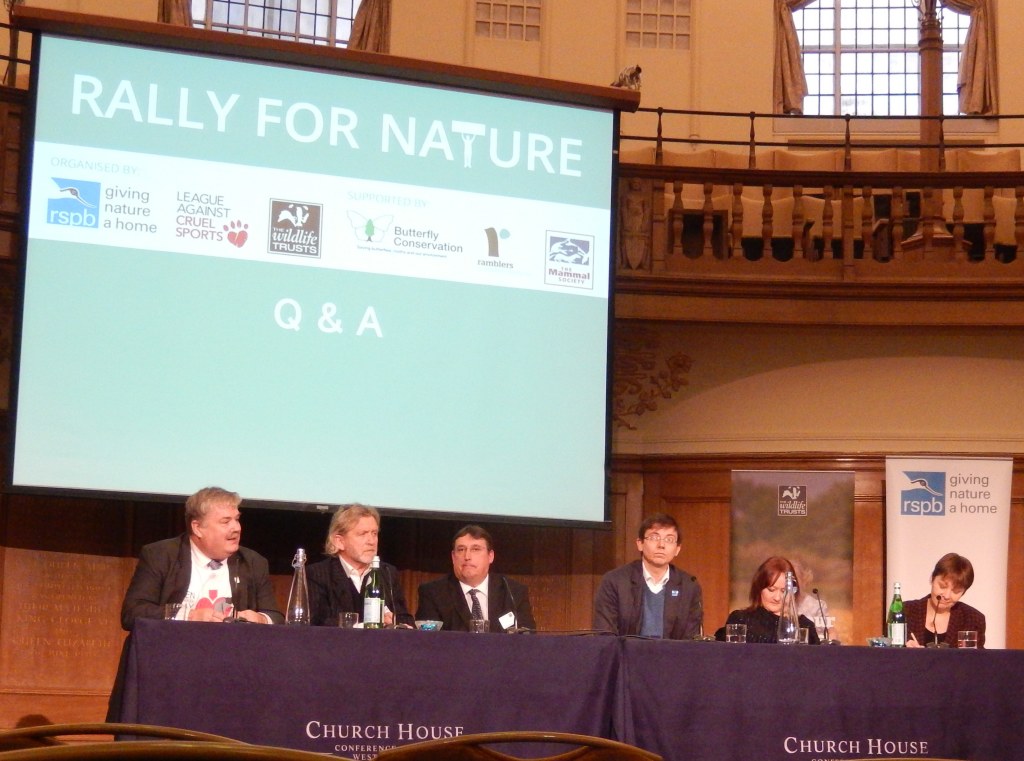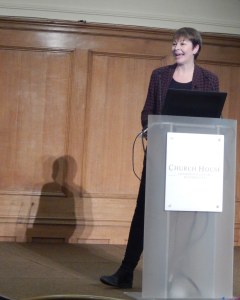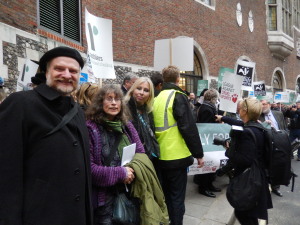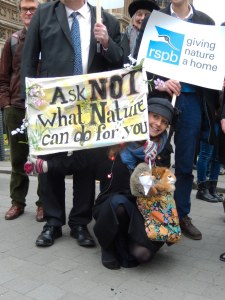On the PM programme on Radio 4, the presenter Eddie Mair regretted the long, long wait until polling day, given the inevitable length of the campaign with a fixed-term parliament. He sympathized with listeners at having to endure the same old party political ding-dong as the rivals seek to batter each other into submission. He suggested that we listeners tell him what we would like to know about the next general election.
What politicians want to talk about
The parties seem to want to tell us about the NHS (Labour) and the Economy (Conservative) and Immigration (all of them), so I’d like to hear about, well, anything else: especially nature.
Politicians don’t even call nature by its name any more.
- They burble about “Sustainability“, but making our cities larger every year is not sustainable: that would mean a steady state. Think about it. Sustainable living is imaginable, but it would be nothing like how we live now. Everything – I mean everything – would be recycled. We’d use glass not china, so it could be melted down and reused when it broke. We’d burn no coal, oil, or gas. We’d design every product to be broken down into its components for recycling, as they’ve started to do in Germany. In short, current politico-talk about sustainability is just waffle, greenwash. You may have a ruder word for it.
- They mumble about the “Environment“, as if nature impinged on our lives solely through dirt or noise in the places where we live. But our impact on the natural world is far, far greater than that. We have ravaged every habitat, every ecosystem on the planet. The African bush, home to elephants, rhinos, gazelles? It’s in free fall. Grasslands and meadows? We’ve lost 98% of ours. Wetlands, marshes, reedbeds? Disappearing everywhere. Mangroves and coral reefs? In crisis wherever they (used to) occur. Rainforest? You know the answer.
- They waffle about “Biodiversity“, as if the word were a charm or mantra, calling for impact assessments for each major building project, which the planners then immediately ignore. But the diversity of life in England, like that of the whole world, is in crisis. Many people alive today will witness the mass extinction of perhaps a third of all the species now alive; man-made global warming and the resulting changes to the climate; the catastrophe being visited on all the oceans through overfishing; pollution, overpopulation, deforestation: the worldwide destruction of nature.
- They ramble on about “Conservation“, as if nature would be fine if limited to a few nature reserves here and there, and try to change the conversation to the economy/the NHS/immigration (delete according to taste) as soon as possible. But nature is the whole of our planet (including us, if you prefer, but that’s another story). We depend on plants and algae for the oxygen we breathe. We depend on plants and animals for the food we eat. We depend on bees and other insects to pollinate many of our crops. We depend on bacteria to detoxify our sewage and rubbish. We depend on plant genomes for our medicines and our crops’ resistance to disease. We depend completely on nature.
What I’d like the politicians to tell me
I’d like to know what they will actually do for Nature, for everyone’s benefit:
- what each party’s policy on nature really is
- how they will prioritize nature
- how children, NHS patients, and old people will be given access to nature for education, rehabilitation, wellbeing
- how fisheries will be protected
- how the decline of wildlife on farms will be reversed
Direct answers, please.
Well, I’d like to know a whole lot more, given the global disaster I’ve outlined, but that should be enough to start with. What would you ask?






